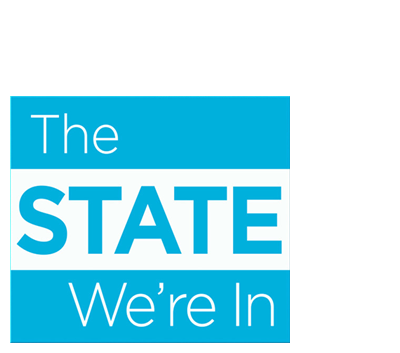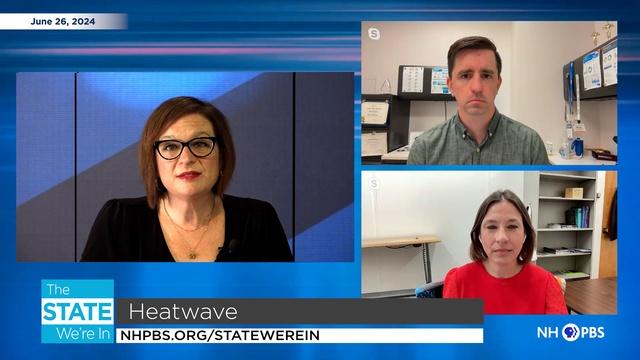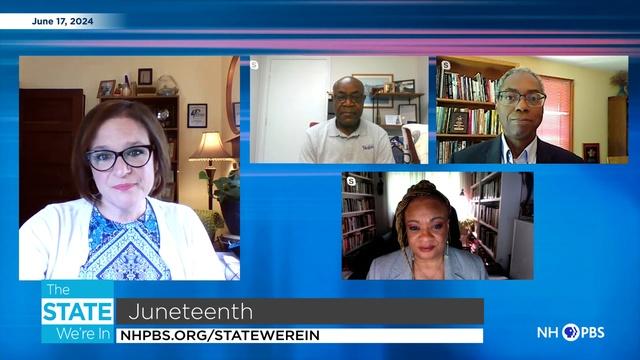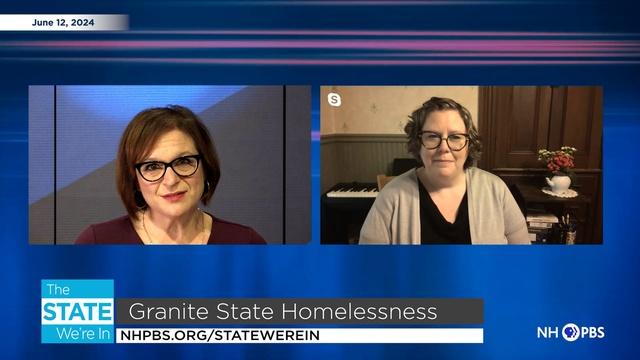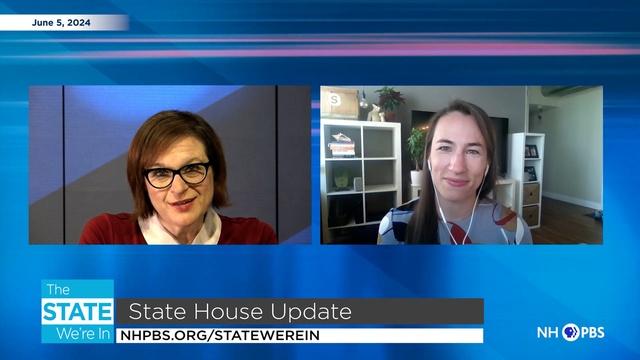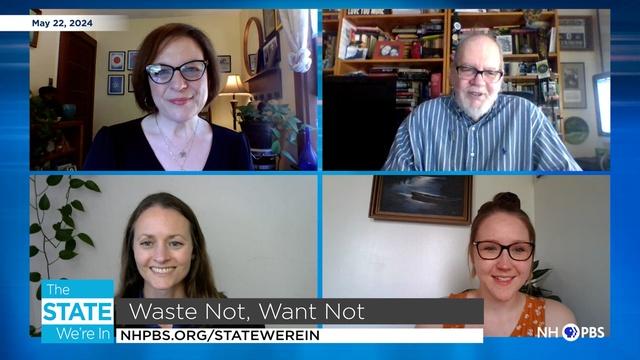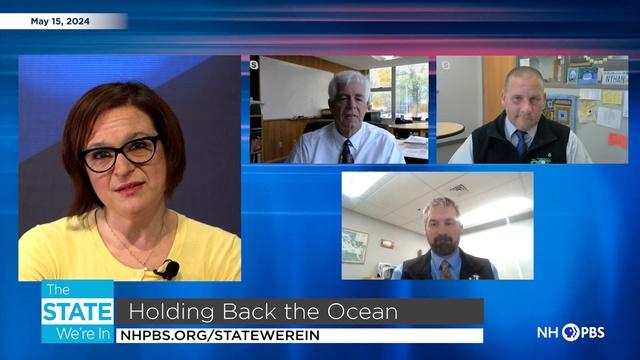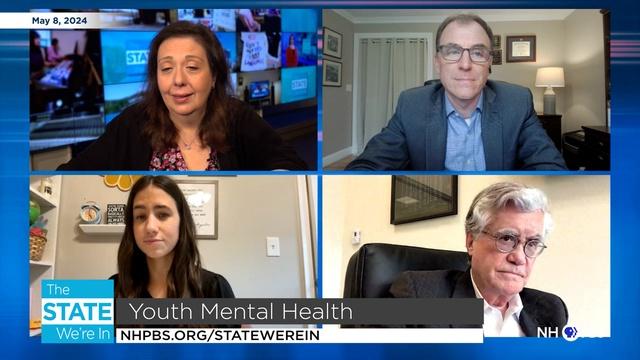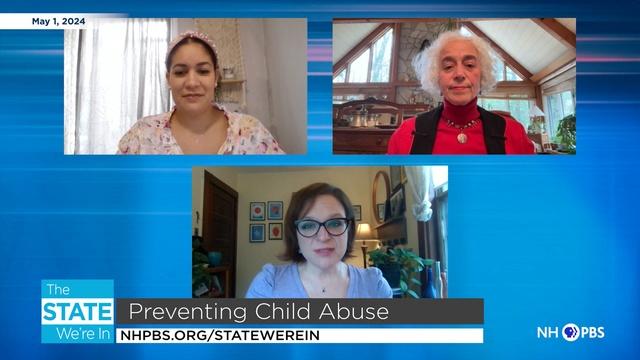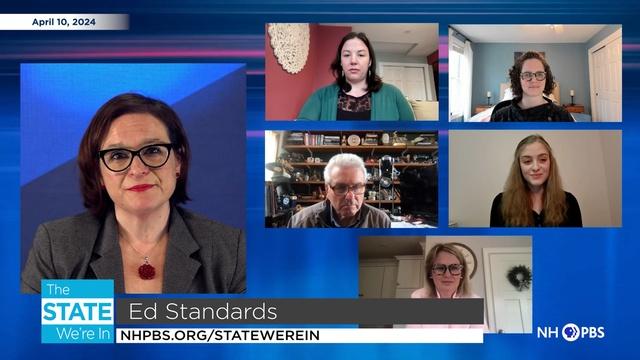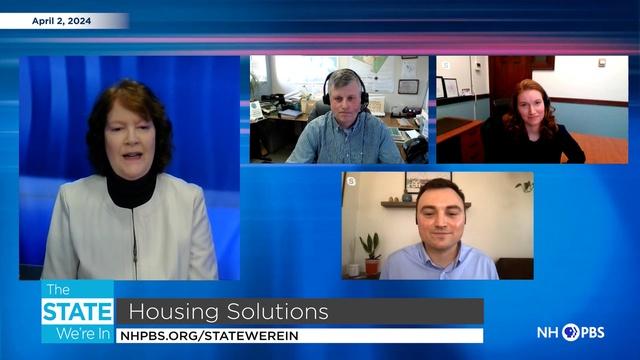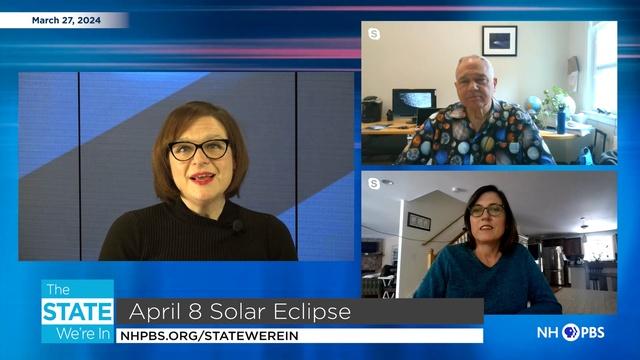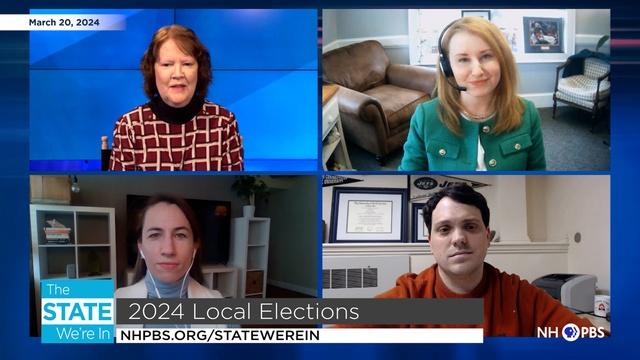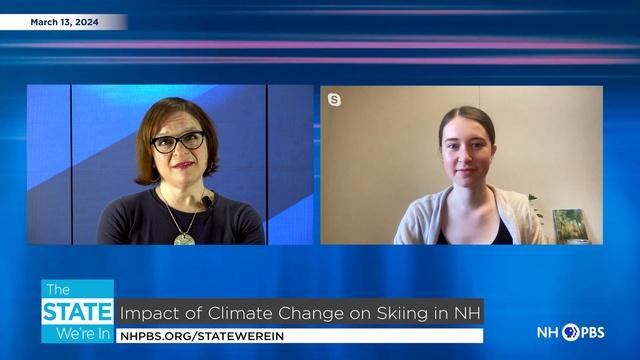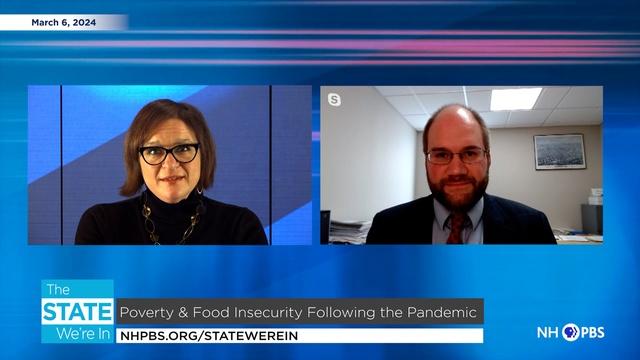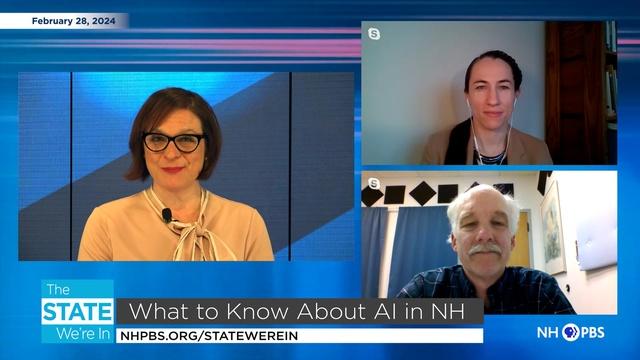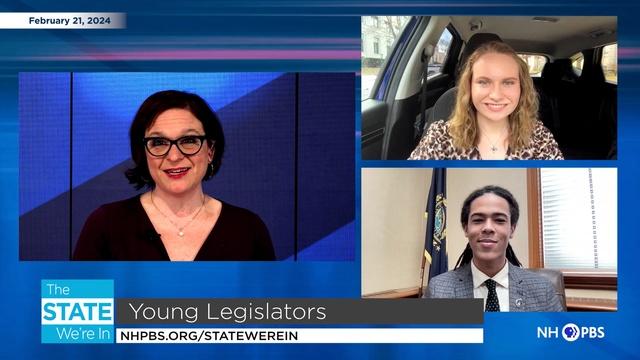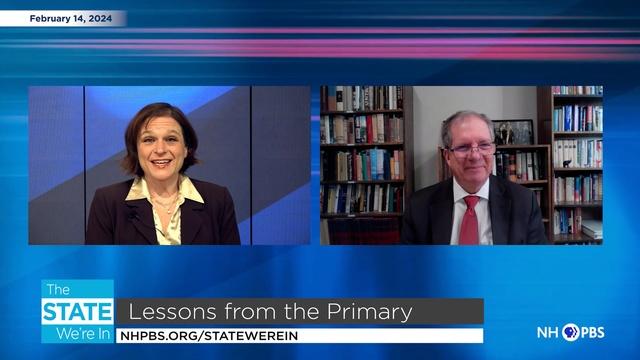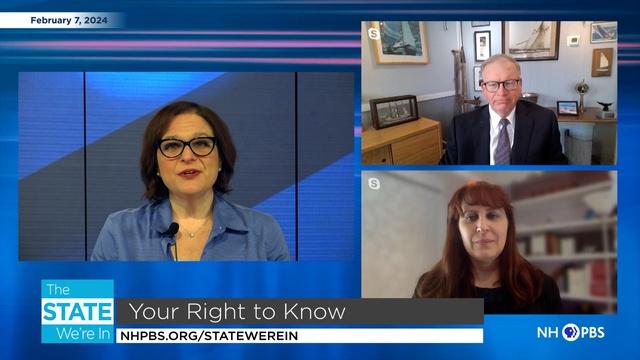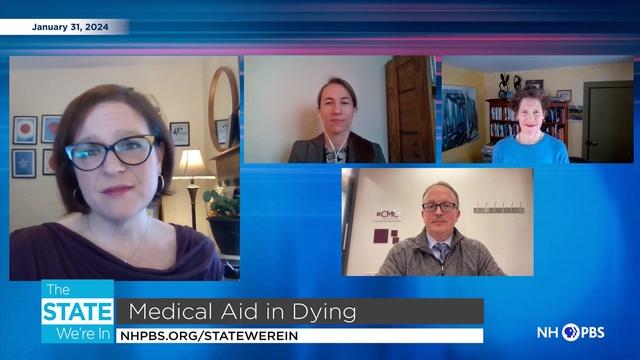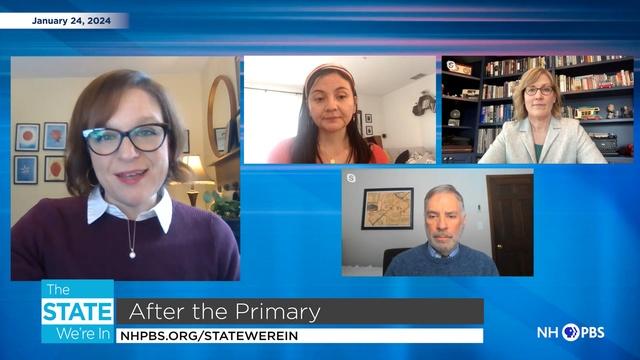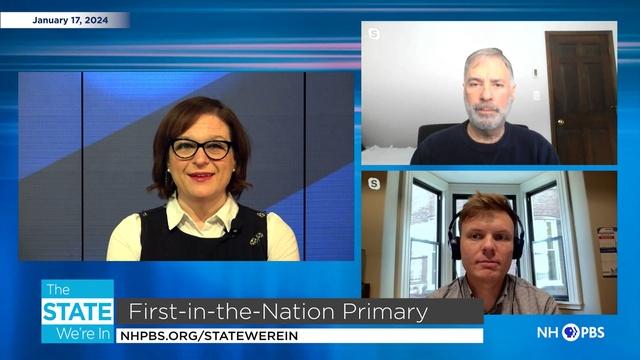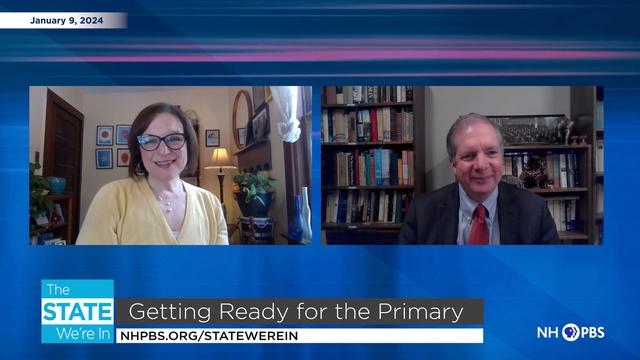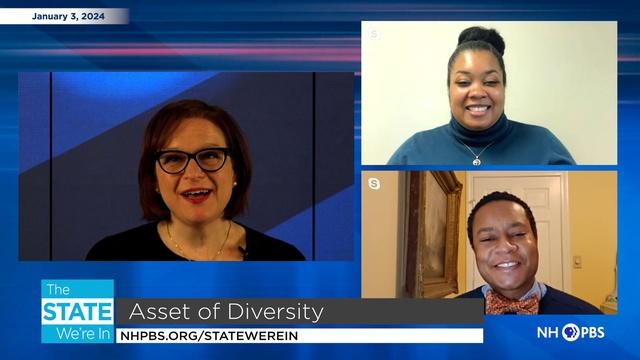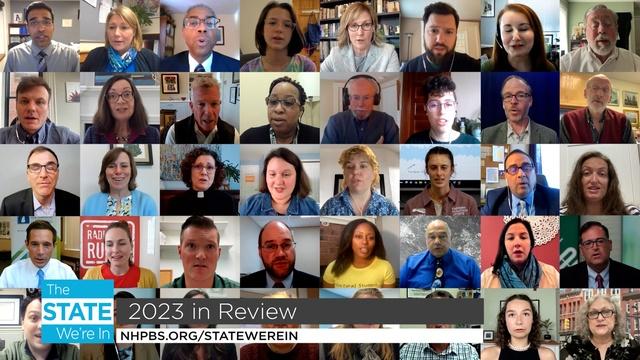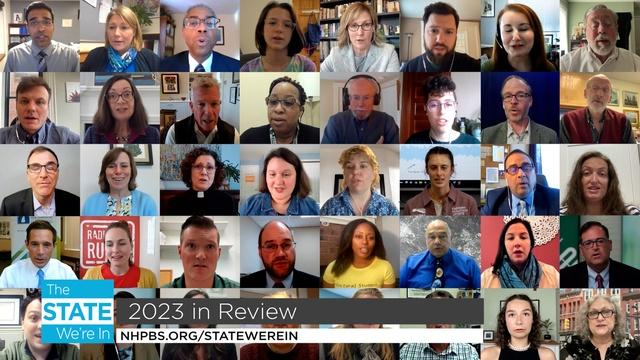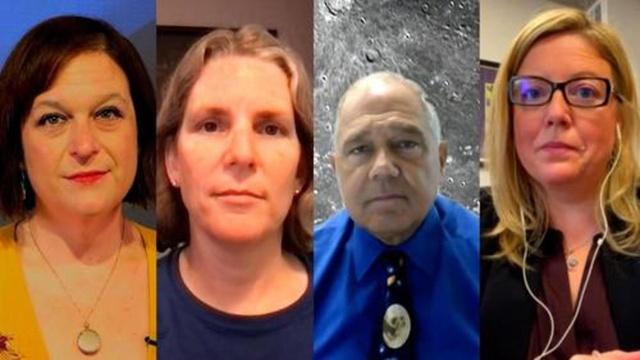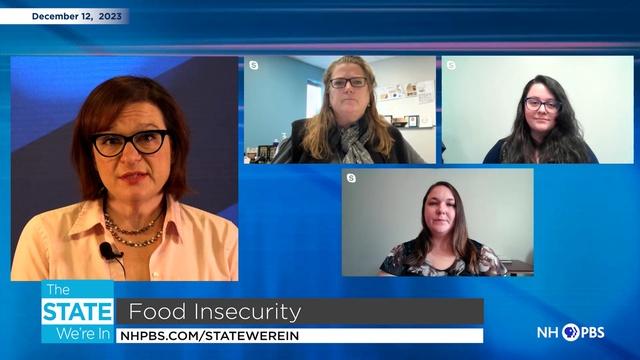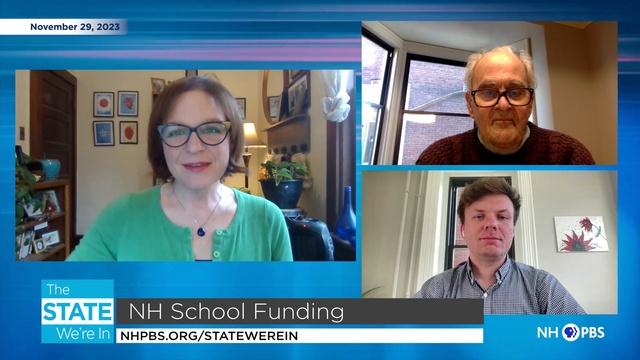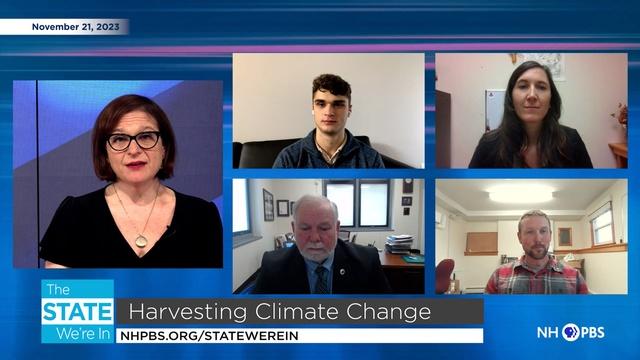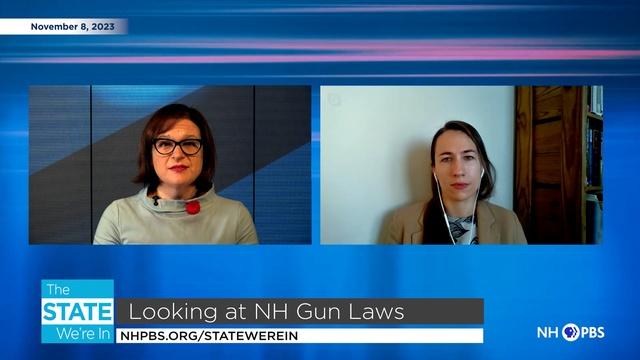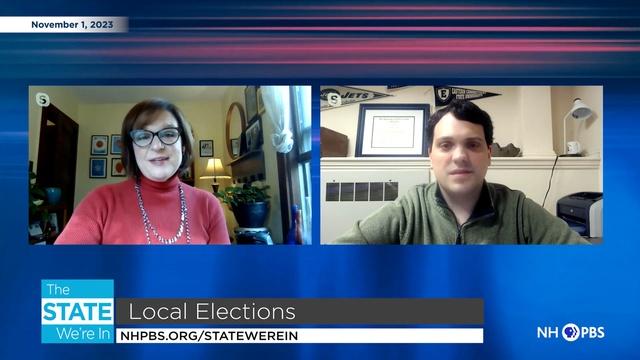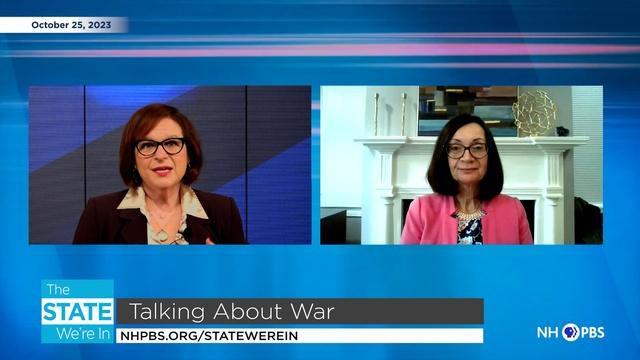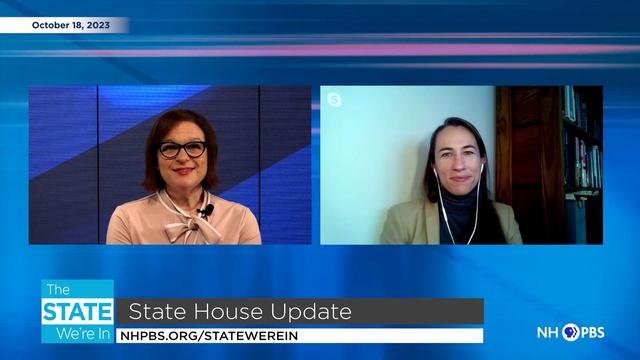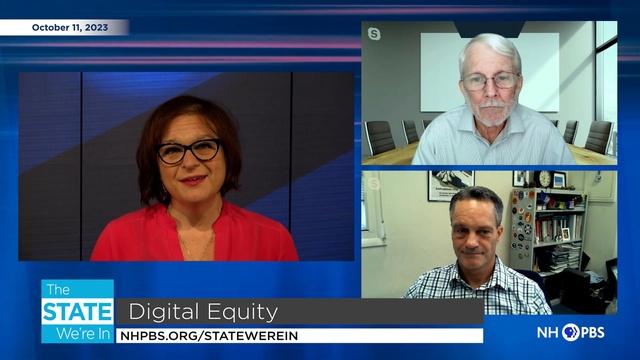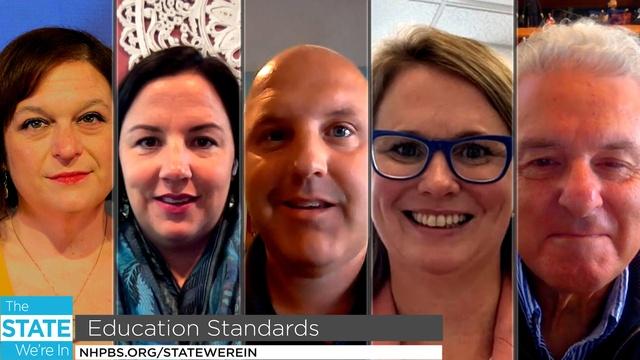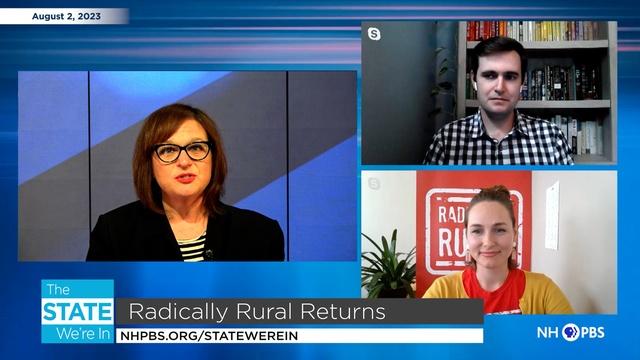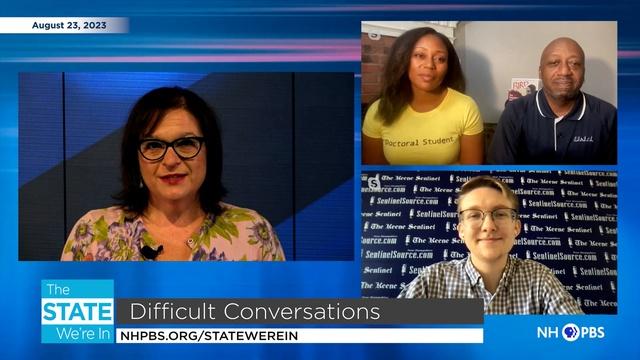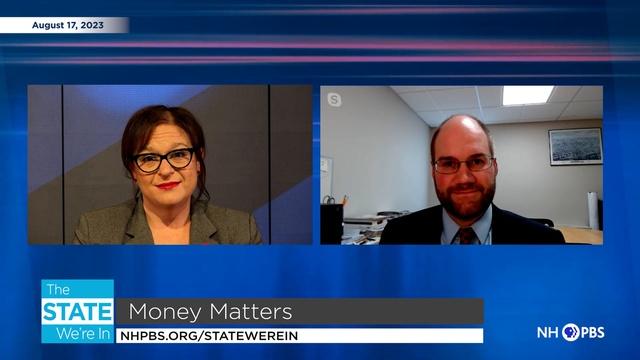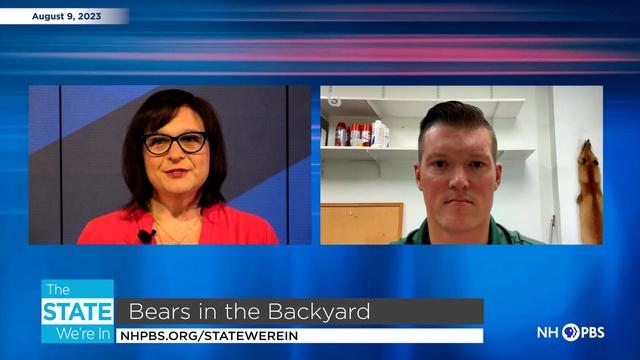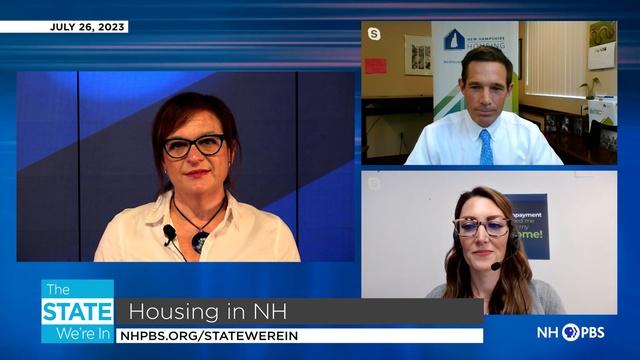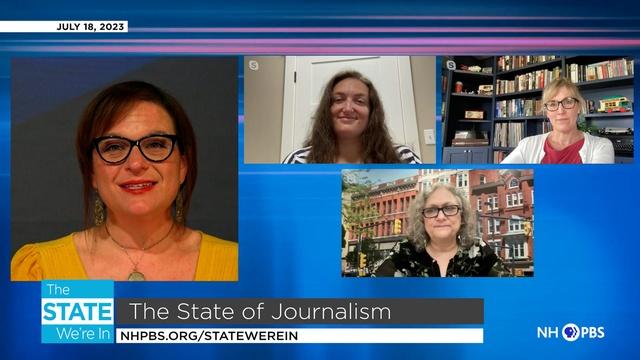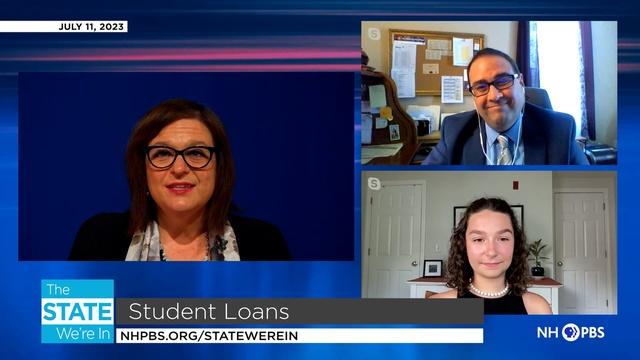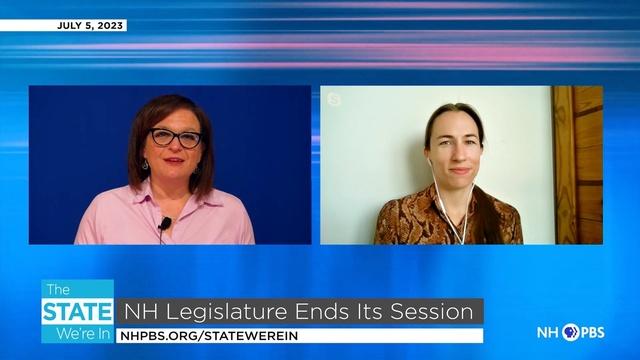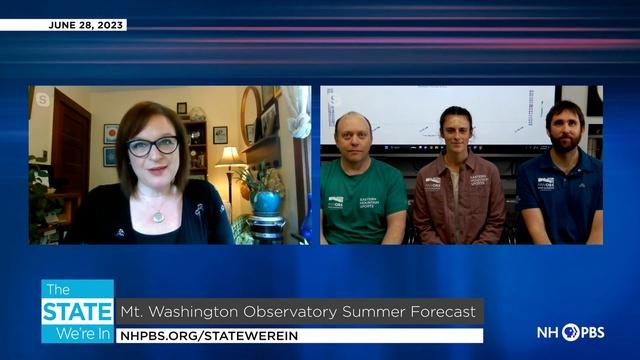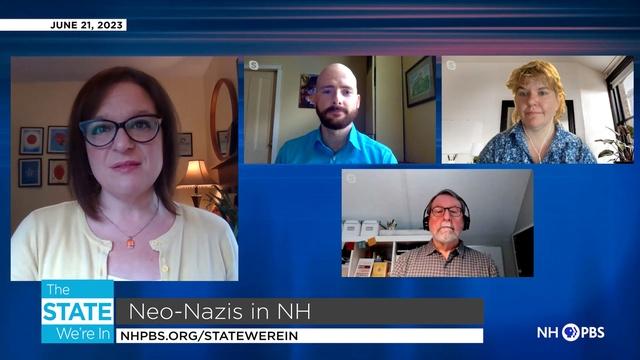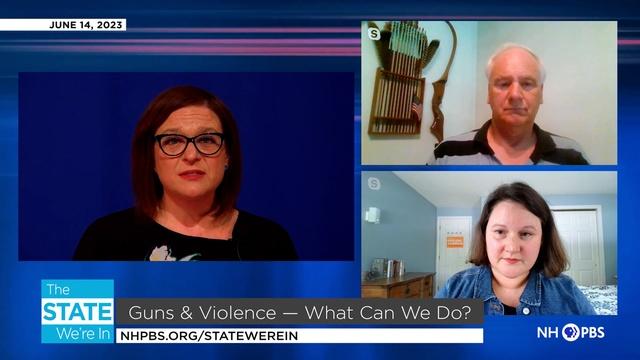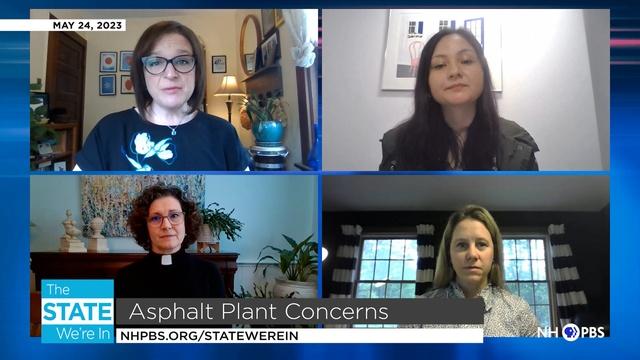Housing Frenzy - Q&A Transcript
Episode Date: May 19, 2021
Cover Graphic From: NH Business Review
By Dawn DeAngelis and Melanie Plenda
GSNC/NHPBS
Housing Frenzy
This content has been edited for length and clarity.
Housing prices are on the rise again in the Granite State. Inventory is low, and what’s good news for sellers is bad news for buyers and people looking for homes they can afford. Joining The State We’re In host Melanie Plenda, we get perspective from NHBR reporter Bob Sanders and insights from Jason Sorens at the Saint Anselm Center for Ethics in Society about the housing New Hampshire needs.
Melanie Plenda: Bob, can you talk us through, you know, where have we seen the most, most growth and why, and, and where have prices been the lowest?
Bob Sanders: They're always the lowest in Coos, but even they went up 40% there. The average had been going up two digits for the last half year at least, and last week the average home now sells for $382,000; that's $18,000 more than last month, it went up nearly $20,000 in a month. We have a lot of people with money in their pockets because they haven't been able to go to the theater or go out to eat very much, and you have people coming up from all over the country to New Hampshire. In fact, Manchester is the hottest market in the country, according to one survey. We're the hotspot of the nation right now when it comes to real estate.
Melanie Plenda: As to the state's employment situation, the governor is going to cut federal jobless benefits and will instead incentivize people to return to work. Can you tell us more about that?
Bob Sanders: There's a lot of people focused on the $300 extra, and that's a big deal because the highest benefit we pay is $470-something. But what's really going to affect people even more drastically is these new enhanced categories that were added as a result of the pandemic plus the extended benefits. With unemployment, you used to get benefits for 26 weeks and then it ended. They extended it in this case to I think it was 53 extra weeks, so a whole extra year. Now that comes to an end on June 19th.
There are other two major categories. One is you have to can't work because your kids are home from school or they can't get daycare or you're quarantined - because you just hung out with somebody who had COVID, or you're sick yourself, or you're taking care of a kid who is sick from COVID. They all got unemployment benefits and that's suddenly going away. These people aren't just going to lose the $300, they're going to lose all their benefits. There's one other category that's never been done before that really reflects our current economy, and that is a gig worker or the self-employed or the consultant. It even includes business owners: when the business closes, your workers get unemployment, but the business owner doesn't. Under the expansions, the business owner could also get benefits. You could have a factory with a hundred people and then have to close, and you could collect unemployment. Well, all that's gone too.
Melanie Plenda: Well, many are saying that the lack of affordable housing is also a factor in why so many jobs are going unfilled. This week the governor asked the federal government for flexibility in spending rent relief funds to make more affordable housing available. So how is that being received, do you think?
Bob Sanders: I think it makes some housing activists kind of nervous, but I have to give the governor points here. I mean, we have $350 million set aside for rent in New Hampshire and when the governor set up a program last year when things were much worse, they couldn't spend $20 million. So now because of the new way that they do their programs, the federal government gives us an absolute minimum. We're a small state, we get the minimum and we actually per capita are doing way better than a lot of other states. This is not New York or Chicago with huge housing rental, and we have $350 million to spend when we couldn't spend $20 million. In two months we've set up the program, we spent about $7.5 million, but the truth is that it's a very slow program. It's run by the Community Action Programs, or CAPs. They're bureaucrats, what can you say? They're used to doing forms and it seems to take forever.
Melanie Plenda: Well, thank you so much for your hard work on that Bob Sanders, reporter for the New Hampshire Business Review. Thanks as always for your perspective. So what else can we do to create the housing that New Hampshire needs? Jason Sorens is the director of the Center for Ethics in Society at St. Anselm College. In 2018, the Center conducted research surveys and a community dialogue session focused on solutions to making housing more affordable. While the project is two years and a pandemic ago, some of the action steps seem even more applicable today. Welcome Jason. So can you give us an overview of the report's priority recommendations and what, if anything has changed since?
Jason Sorens: Our major recommendations had to do with increasing the supply of housing in New Hampshire. That's the reason why housing is so expensive. There's just not enough of it, even before the pandemic, and it's only gotten worse since then. Our key recommendations in 2018 were to create a dedicated funding source for affordable housing developments, that the state adopt a housing appeals board to make it easier for property owners to appeal zoning and planning board decisions that in their view broke the law, and then our last priority recommendation was to create a steady study commission to look at barriers to density in New Hampshire. We're looking at ways that New Hampshire can make it easier to infill development places where there are already jobs, where there's already infrastructure. We want to build more housing in those places; it’s more environmentally friendly and it's easier for people to get to work when they live in those places.
Melanie Plenda: In one of your papers, you mentioned the importance of framing the affordable housing conversation. Why is that important?
Jason Sorens: When people think about affordable housing or hear that phrase, they sometimes have misinterpretations. They sometimes think that it’s government subsidized housing or there's some sort of government regulation that creates this, which is not the case. We just mean we want plentiful housing that people can afford. To have affordable housing you need to have housing that our essential workers can buy: delivery drivers and postal clerks and hairdressers and people like that. We want all of them to be able to afford homes of their own, and that's very difficult here in New Hampshire. Portsmouth is a really good example where most essential workers would have to spend 30-50% or more of their income on housing just to be able to afford a two bedroom apartment. If we're going to have people in our economy that make our economy run, we need to have housing for them, and that means we need to build more of it.
Melanie Plenda: We’ve heard of NIMBY, Not In My Backyard, but you recently wrote about YIMBY, Y I M B Y. What does that mean? And where is the YIMBY town in New Hampshire?
Jason Sorens: YIMBY is Yes, In My Backyard. These are people who want more housing in their communities, who want multiple generations to be able to afford and live in their communities. A majority of New Hampshire voters actually do want more housing, so you could say that YIMBY is really where we should be. Unfortunately the YIMBY voters often don't show up to local elections, so a lot of our communities are very NIMBY. But there are some towns in New Hampshire that do allow for a lot of housing to be built. In that particular piece, I looked at the town of Canaan in the Upper Valley where I used to live. What's interesting about Canaan is that it is right next to Hanover, which has some of the strictest zoning ordinances in the whole state, or even the whole country while Canaan has no zoning at all. As a result of that, it's easy to build new homes. Canaan is a very attractive town, but it's also a town that's affordable. It's where people who work at Dartmouth and in Hanover often live, and they have to commute longer because of it. They can't afford to live in Hanover or even Lebanon so they move out to Canaan, and Canaan's our sort of safety valve for the Upper Valley. It allows for blue collar workers to live and have a good life. You don't have to have strict zoning regulations to have a beautiful place to live.
These articles are being shared by partners in The Granite State News Collaborative. For more information visit collaborativenh.org.
Watch Online
The Monitor's Seized and Sold
A look at the Concord Monitor's "Seized and Sold" series, which examines evictions and foreclosures.
Return to the
The State We're In
Main Page
Support for The State We're In is provided by New Hampshire Charitable Foundation, Eversource and Hitchiner Manufacturing Co., Inc.
The State We're In is produced in partnership with the Granite State News Collaborative and the students and staff of the Marlin Fitzwater Center for Communication at Franklin Pierce Unversity in Rindge, NH.
How can we beat the heat?
Heat waves in New England, is this our future?
Juneteenth
As the oldest known nationally celebrated event commemorating the end of slavery in the US.
Granite State Homelessness
The first in a series about homeless in the Granite State.
State House Update - 6/5/24
An update on the latest bills before the Legislature.
Waste Not, Want Not
Host Melanie Plenda and guests discuss food waste and how to keep it out of landfills.
Holding Back the Ocean
Host Melanie Plenda speaks about flooding impact on critical state infrastructure.
Youth Mental Health
Examining the Mental Health of high school students.
Preventing Child Abuse
A look at preventing child abuse in New Hampshire.
Educational Standards
A look at proposed revisions to the state's educational standards, also known as 306s.
Housing Solutions
Host Judi Currie speaks with community planners and affordable housing advocates.
April 8 Solar Eclipse
Host Melanie Plenda talks about the upcoming eclipse with guests.
2024 Local Elections
Host Judi Currie speaks with several experts on the key issues surrounding the election.
Impact of Climate Change on Skiing in NH
Melanie Plenda speaks with freelance journalist Beatrice Burack about her series.
Poverty & Food Insecurity Following the Pandemic
Poverty and food insecurity rates here before, during and after the pandemic.
What to Know About AI in NH
Host Melanie Plenda discusses the ins and outs of artificial intelligence.
Young Legislators
State Reps. Jonah Wheeler and Valerie McDonnell join host Melanie Plenda.
Lessons from the Primary
Secretary of State David Scanlon discusses the New Hampshire primary.
Your Right to Know
We discuss HB 1002, which would allow public bodies and agencies to charge up to $25/hr.
Medical Aid in Dying
The NH House Judiciary Committee will hold a hearing on HB1283.
After the Primary
A discussion about the NH Primary results.
First-in-the-Nation Primary
We talk to veteran reporters about the upcoming New Hampshire Primary.
Getting Ready for the Primary
The New Hampshire presidential primary will take place on January 23rd.
Asset of Diversity
Members of the Business Alliance for People of Color discuss how diversity can be an asset
2023 in Review
A look back at "The State We're In."
2023 - Compelling Quotes
The best quotes from 2023.
Nature's Super Bowl
Learn about two upcoming eclipses with prime viewing spots in New Hampshire.
Food Insecurity
Staffers from the NH Food Bank discuss food insecurity in New Hampshire.
NH School Funding
Learn about the recent ruling that could change the way public schools are funded in NH.
Harvesting Climate Change
Melanie Plenda speaks with local agricultural experts about climate change.
Looking at NH Gun Laws
New Hampshire's gun control laws and preventing a mass shooting.
Local Elections
The importance of local elections and how to prepare for them.
Talking About War
How do you talk to kids about gun violence and war?
State House Update
Citizens Count's Anna Brown discusses some of the bills the state Legislature will tackle.
Digital Equity
Bridging the digital divide in New Hampshire.
Fall Health Outlook
Infectious disease expert Dr. Michael Calderwood talks about the fall health outlook.
Education Standards
A look a proposed revisions to the state's educational standards, also known as 306s.
Radically Rural Returns
The popular small town summit is back for a sixth installment.
Difficult Conversations
Different approaches to the same goal.
Money Matters
More New Hampshire residents are finding it difficult to afford everyday expenses.
Bears in the backyard
More bears are showing up in backyards and social media feeds.
Housing in NH
The 2023 NH Residential Rental Cost Survey Report and what it means for NH residents.
The State of Journalism
Host Melanie Plenda talks through the state of journalism in New Hampshire.
Student Loans
Host Melanie Plenda talks with Financial Aid Professional and a recent grad about debt.
NH Legislature ends its session
Host Melanie Plenda talks with Citizens Count's Anna Brown.
Mt. Washington Observatory Summer Forecast
Host Melanie Plenda speaks with scientists from the Mount Washington Observatory.
Neo-Nazis in NH
Host Melanie Plenda talks about combating hate and misinformation around a drag story hour
Guns & Violence -- What can we do?
Host Melanie Plenda looks for common ground from two perspectives.
Asphalt Plant Concerns
Hear concerns about a proposed asphalt plant in Nashua, which has residents worried.

